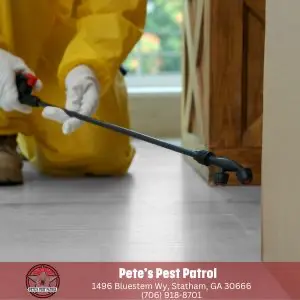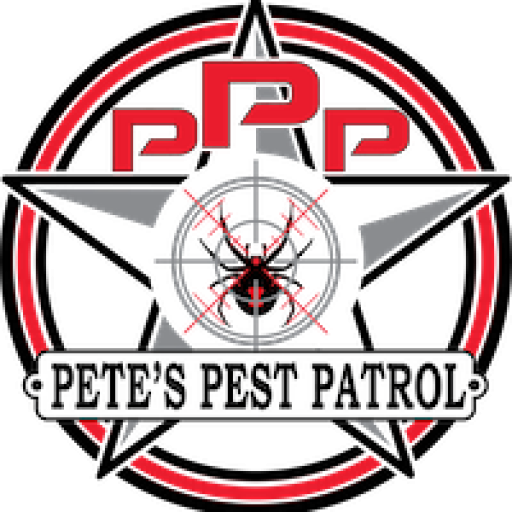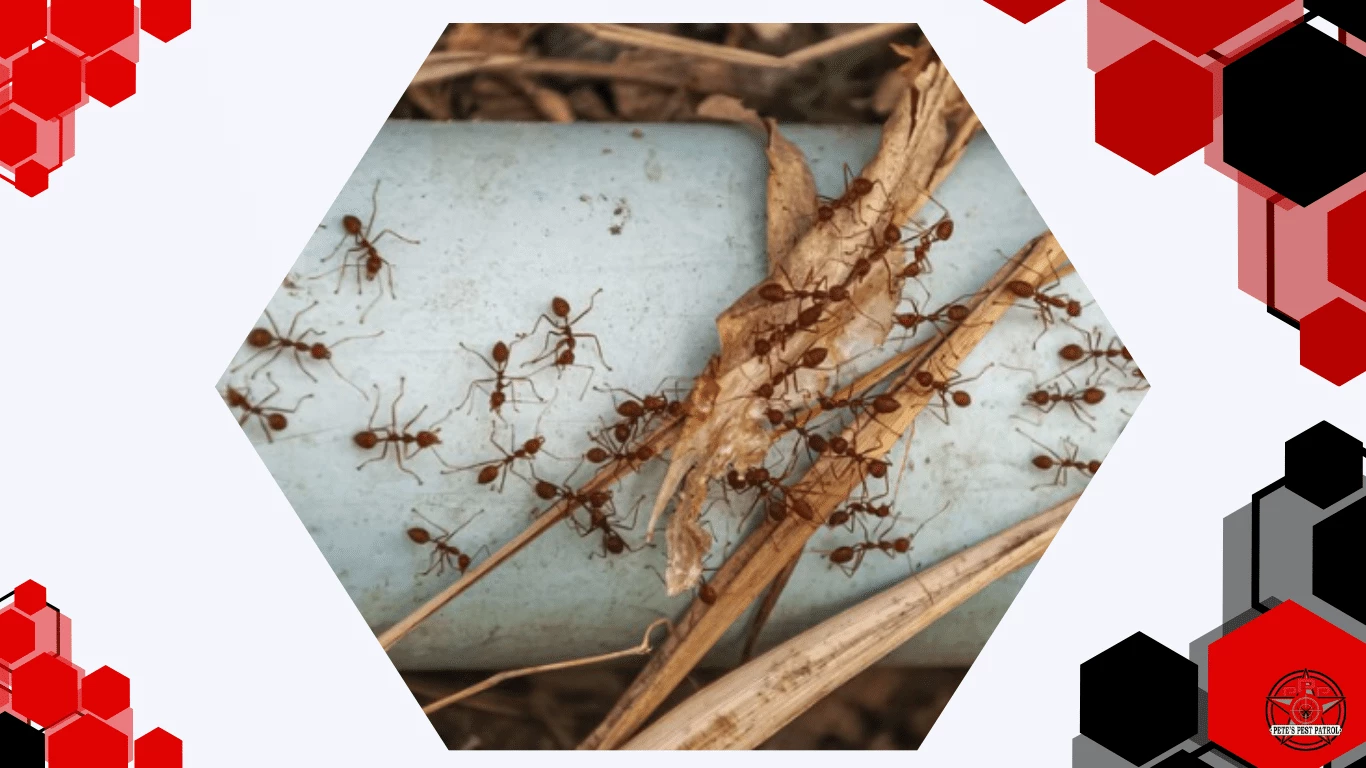Pest infestations carry notable health risks. Pests like mosquitoes, ticks, and rodents can transmit diseases, while allergens from cockroaches, dust mites, and rodents trigger allergies.
Preventive measures include cleanliness, sealing entry points, and professional pest control. DIY pest control has risks of ineffectiveness and health hazards if misused.
In severe or recurring infestations, professional help is advised to ensure thorough elimination and minimize health threats. Addressing pest infestations promptly and cautiously is necessary for safe and healthy life.
What diseases can pests transmit?
Pests can transmit various diseases to humans through direct contact, bites, stings, or contamination of food and surfaces. Some common problems and the diseases they can transmit include:
- Mosquitoes: Mosquitoes are vectors for diseases such as malaria, dengue fever, Zika virus, West Nile virus, and chikungunya. They transmit these diseases through their bites.
- Ticks: Ticks can transmit Lyme disease, Rocky Mountain spotted fever, anaplasmosis, and other tick-borne illnesses when they attach to the skin and feed.
- Fleas: Fleas can transmit bubonic plague and murine typhus through their bites. While these diseases are relatively rare, they still pose health risks.
- Rodents: Rats and mice are known carriers of diseases like hantavirus, leptospirosis, and salmonellosis. These diseases can be transmitted through rodent urine, feces, or bites.
- Cockroaches: Cockroaches can carry and spread pathogens that cause diseases like food poisoning, diarrhea, and respiratory infections. Their feces and saliva can contaminate food and surfaces.
- Bedbugs: While bedbugs do not transmit diseases directly, their bites can cause allergic reactions, skin infections, and psychological distress.
- Flies: Houseflies can transfer disease-causing bacteria and viruses from contaminated surfaces to food. Diseases like cholera and salmonella can be indirectly transmitted through fly contact.
- Ants: Certain ant species, such as pharaoh ants, can transmit bacteria and contaminate food, potentially leading to foodborne illnesses.
It’s important to note that not all pests are disease vectors, and the risk of disease transmission may vary depending on geographic location and pest prevalence. However, being aware of potential disease vectors and taking preventive measures is crucial in minimizing health risks associated with pests.

How to prevent health risks from pests?
Preventing health risks from pests requires a proactive and comprehensive approach to minimize infestations and their associated dangers:
- Maintain Cleanliness: Keep living spaces clean and uncluttered. Regularly clean and sanitize surfaces, especially in the kitchen, to remove food debris that attracts pests.
- Seal Entry Points: Seal gaps, cracks, and openings in doors, windows, and walls to prevent pests from entering your home.
- Proper Food Storage: Keep food sealed and keep garbage in tightly sealed bins to eliminate food sources for pests.
- Regular Inspection: Routinely inspect your home for signs of pests, paying particular attention to basements, attics, and crawl spaces where infestations often begin.
- Moisture Control: Address moisture issues like leaks and standing water to deter pests like termites and cockroaches, which thrive in damp environments.
- Yard Maintenance: Trim vegetation away from your home, eliminate standing water, and maintain outdoor areas to reduce mosquito breeding sites.
- Professional Pest Control: Consider regular pest control services from licensed professionals to prevent infestations and address existing problems effectively.
- Educate Yourself: Learn about common pests in your area, their habits, and potential health risks to understand prevention strategies better.
By implementing these preventive measures, you can significantly reduce pest infestations and the associated health risks to you and your family.
Can pests cause allergies?
Yes, pests can be a trigger for allergies and allergic reactions. Allergies to pests are often associated with proteins in their saliva, feces, urine, and body parts. Common pests that can cause allergies include:
- Cockroaches: Cockroach allergens commonly cause allergic reactions, especially in urban areas. Exposure to cockroach allergens can lead to symptoms such as sneezing, coughing, wheezing, skin rashes, and nasal congestion.
- Dust Mites: Unlike pests, dust mites are microscopic organisms that thrive in dust and can trigger allergies. Bedding, furniture, and carpets are typical places to find them.
- Rodents: Exposure to allergens from rodent urine, feces, and dander can lead to allergies, particularly in sensitized individuals. Symptoms may include respiratory issues and skin reactions.
- Stinging Insects: Bee and wasp stings can cause severe allergic reactions in some individuals, leading to symptoms such as swelling, hives, difficulty breathing, and anaphylaxis.
- Bedbugs: While bedbug bites do not typically trigger allergies, some people may experience allergic reactions to the proteins in bed bug saliva, resulting in skin rashes and itching.
Allergic reactions to pest-related allergens can vary in severity, from mild discomfort to potentially life-threatening anaphylactic reactions. If you suspect you or a family member has pest-related allergies, consult an allergist for proper diagnosis and management.

Are there risks with DIY pest control?
While DIY pest control methods are commonly used, they come with certain risks and limitations:
- Ineffectiveness: DIY methods may not effectively eliminate pest infestations, especially if the infestation is severe or the pest is resistant to common pesticides.
- Health Risks: Improper use of pesticides can pose health risks to humans and pets. Exposure to pesticides can lead to poisoning, respiratory issues, skin irritation, and other adverse effects.
- Environmental Impact: Misuse of pesticides can harm the environment, including beneficial insects, wildlife, and water sources. It may also contribute to pesticide resistance in pests.
- Safety Concerns: Handling pesticides without proper knowledge and mishaps and injuries may occur as a result of safety measures.
- Incomplete Elimination: DIY methods may eliminate visible pests but not address the root cause of the infestation, leading to re-infestations.
- Delayed Action: Delaying professional pest control may allow pests to multiply and worsen the infestation, making it more challenging and costly to resolve.
While some minor pest issues can be managed with DIY methods, weighing the risks and considering professional pest control when dealing with persistent or potentially hazardous infestations is essential.

Do pest infestations require professional help?
In many cases, pest infestations are best addressed in collaboration with extermination experts. In the following cases, it might be wise to consult an expert:
- Severe Infestations: If the infestation is extensive or powerful, professional intervention is often necessary to effectively eliminate the pests.
- Persistent Infestations: When DIY efforts have not resolved the pest problem, professionals can identify the source of the infestation and implement comprehensive solutions.
- Health Risks: Professionals should address infestations involving pests known to transmit diseases or allergens to minimize health risks.
- Structural Damage: Pests like termites or carpenter ants can cause structural damage to homes. Professionals can assess and address these issues.
- Recurrent Infestations: Frequent re-infestations may indicate underlying conditions that need professional attention, such as addressing entry points.
- Safety Concerns: If pest control involves handling toxic chemicals or dealing with stinging insects, it’s safer to rely on trained professionals.
- Wildlife Removal: Removal of larger pests like raccoons, bats, or snakes often requires specialized knowledge and equipment, making professional assistance essential.
- Commercial Properties: Pest infestations in commercial settings, such as restaurants or warehouses, may have regulatory implications and require professional management.
Professional pest control services offer expertise, access to effective treatments, and the ability to address the root causes of infestations. They can also offer continuous safety precautions to minimize the risk of future infestations.
Pest infestations can pose significant health risks, from disease transmission to allergic reactions. To protect your health and well-being, it’s essential to take preventive measures, maintain cleanliness, and seek professional help.
Although do-it-yourself pest control techniques work for small issues, persistent or severe infestations often require professional pest control services. Regular inspections, prompt action, and awareness of potential health risks associated with pests are crucial in maintaining a pest-free and safe living environment.

